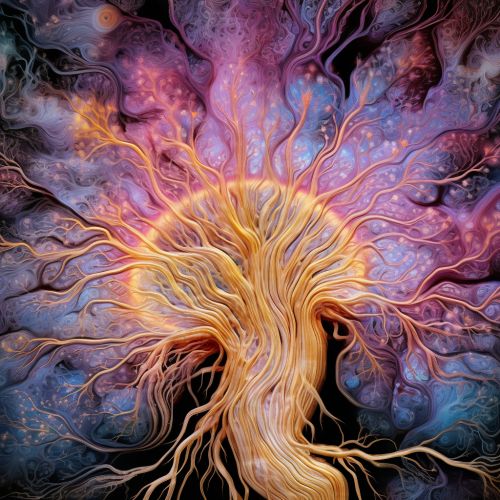Language of Thought
Introduction
The Language of Thought (LOT) is a philosophical and cognitive science theory that posits that thought and thinking take place in a mental language. Often referred to as mentalese, this internal language is said to have a complex syntax and structure that is analogous to the syntax and structure of a natural language. The theory is a central part of the computational-representational theory of thought (CRTT), which suggests that the mind works like a computer, processing mental representations of information in a systematic way.


History and Development
The concept of a language of thought has its roots in the work of philosophers such as Descartes and Boole, who proposed that thinking involved the manipulation of mental representations. However, the modern formulation of the LOT was developed by philosopher Fodor in his 1975 book, "The Language of Thought". Fodor argued that a language-like structure was necessary to explain several aspects of human cognition, including our capacity to understand and produce sentences that we've never heard before.
Theoretical Basis
The LOT is based on the premise that thoughts are represented in a "language" that allows complex mental activity. This includes everything from our ability to reason and solve problems to our capacity to understand and generate language. According to the LOT, this mental language has its own syntax and grammar, which are similar to, but more complex than, those of any natural language.
Criticisms and Counterarguments
Despite its influence, the LOT has been subject to numerous criticisms. Some critics argue that the LOT is based on a misguided analogy between the mind and a computer. Others suggest that the idea of a mental language is unnecessary, proposing instead that thinking can be explained in terms of more general cognitive processes. Yet others argue that the LOT cannot account for certain aspects of human cognition, such as emotion and creativity.
Implications and Applications
The LOT has significant implications for a range of fields, including cognitive science, artificial intelligence, linguistics, and philosophy. In cognitive science and artificial intelligence, the LOT has been used to guide research into the nature of mental representation and the mechanisms of cognition. In linguistics, the LOT has influenced theories of syntax and semantics, as well as the study of language acquisition. In philosophy, the LOT has contributed to debates about the nature of mind, thought, and consciousness.


